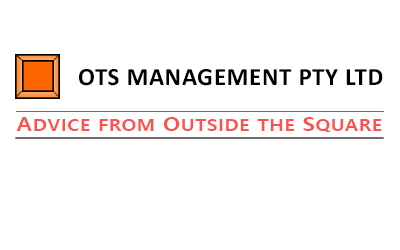One of the most important tools in ensuring that your governance operates at best-practice is to implement an annual Board Self-Assessment process.
A strong, efficient and productive board of directors is a clear indicator of a healthy corporation.
However even the best performing Boards need a periodic assessment to ensure that it doesn't just manage, but will really thrive in today’s evolving challenges.
To provide a check-up of your board’s performance, and to identify the required practices and strategies for a healthy and productive Board, the best place to start is with an honest board self-assessment.
Yet in a governance survey conducted by BoardSource, only 51% of Not-For-Profit organisations responded that they use a formal self-assessment to evaluate their Board's effectiveness. So, where do you start?
You can start a Board Self-Assessment process at any time - but whether it will be honest and effective will depend on how ready your Board is to use this tool.
The first place to start is with an open, honest discussion. Perhaps people aren't ready for what appears to be a confronting process? Directors on Boards of Indigenous corporations may be comprised of largely volunteers and representatives of community groups with different levels of confidence in their competency and capability. Sitting on Boards is "doing the right thing" for their communities and a formal self-assessment may bring all kinds of pressure they are not ready for.
The first (perhaps of a number) of discussions should be about the facts of the process, as well as the objectives. That is, self-assessments are positive tools to help individuals, not to penalise them.
Once the fear of the unknown has lessened, start with a simple multiple-choice or ranking survey that can be done confidentially and individually. This reinforces the fact that the process is not to "shame" and call out deficiency. The results should be depersonalised outside of management, by summarising majority results and made productive by analysing the break-down and what might be done to improve.
Again the depersonalised report shows people that it is not about any one individual, and the advice on where to go next shows people it is all about performance-improvement.
The focus of self-assessment should be on what works and what doesn't, what should be changed, and what is recommended to move forward. The effectiveness of the process lies in the significant majority, or preferably 100% of the Board, engaging in these questions.
As for the Board Self-Assessment questions themselves, these are the questions I would recommend you start with:-
- Questions about strategic direction and their roles and responsibilities. This would include questions around their understanding of the constitution and their legal roles and responsibilities, and how they practice adherence in "real life". These would also include questions about their understanding of the current strategic plan, their role in it, and how they base Board decisions on the strategies.
- Questions about their display of leadership. How is the Chairperson performing in terms of keeping meetings on rack, and working with management? What kind of succession planning discussions and processes take place? How does the Board show leadership (bearing in mind separation of powers) to management and staff?
- Questions about due diligence and accountability. This group of questions should include consideration of how they find information before making decisions; their understanding of technical reports such as the financial reports; whether there are risk-management frameworks and are they being monitored; and questions around transparency and feedback to constituents.
- Questions about structure, process and composition, examining the gender and other balances involved; whether there are appropriate sub-committees properly constituted with Terms of reference; whether induction processes exist and are sound; and whether meetings processes are respected.
After the self-assessment and summary, the fun starts. The question you then have to answer is "so what?" Now that you know where you stand, what needs improving and what do you need to do to improve it?
If you want more help in starting a transparent Board Self-Assessment process, get over to our website www.otsmanagement.com.au and click on the Contact Us tab - set up an obligation-free discussion about how we can help.
If you are reading this on our social media pages, why not subscribe to our newsletters providing plenty of free ideas to grow your business? Click here http://eepurl.com/cCRyvL and subscribe to get them delivered directly to your inbox. And don't worry, we hate spam too so you can unsubscribe at any time, and we promise never to give your details to anyone else.
And what about your experiences out there? Do you think you need a good Board Self-Assessment process? How is yours working? Comment below to share your experiences.


